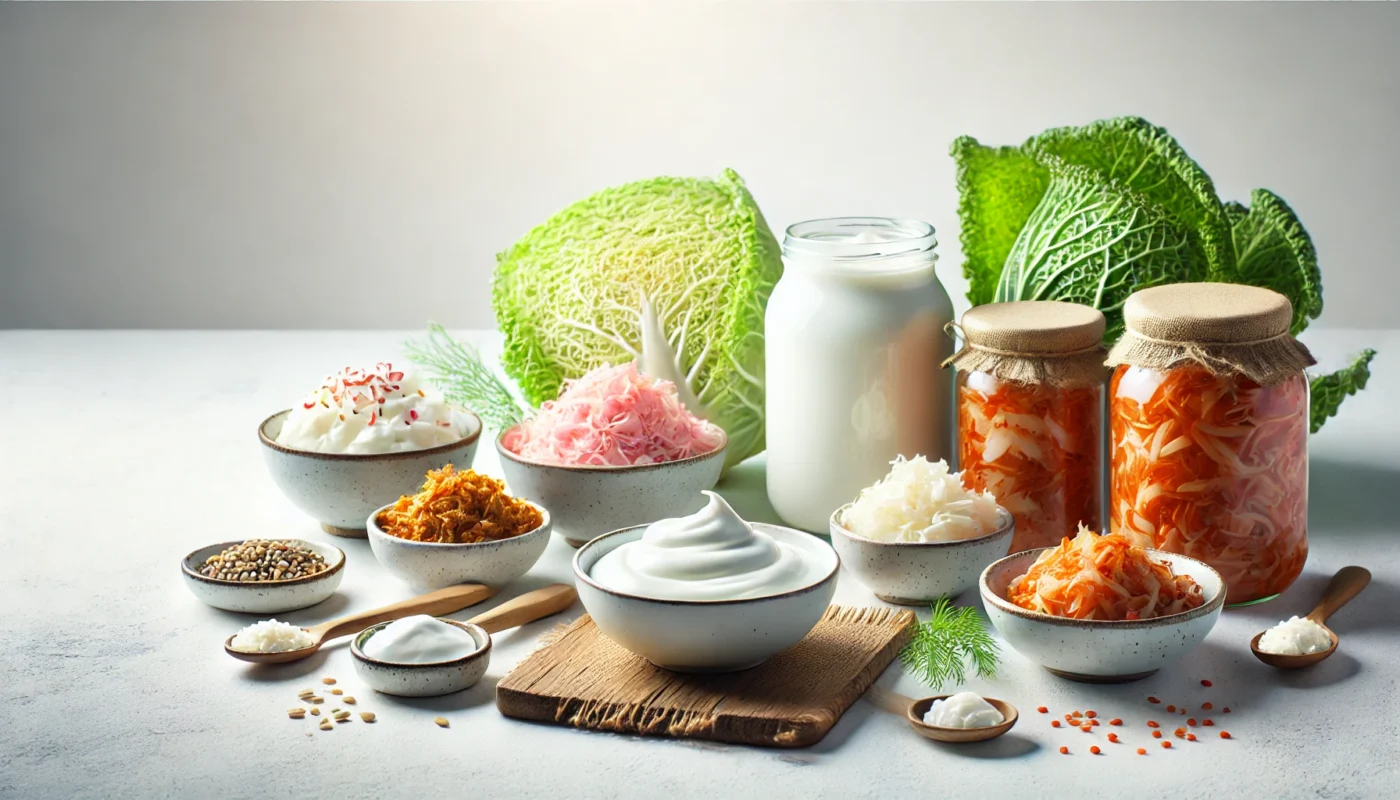White blood cells (WBCs) are the body’s defense force. They are crucial for fighting infections and maintaining overall health.
However, many people struggle to understand how to naturally boost their WBC count. This is where diet comes into play.
Certain foods can enhance the production and function of WBCs. From vitamin C-rich fruits to zinc-packed seeds, your diet can significantly influence your immune health.
This article aims to translate scientific research into practical advice. It will help you understand how to incorporate immune-boosting foods into your daily meals.
Whether you’re a fitness enthusiast, a health enthusiast, or a medical patient, this article is for you. It provides reliable, research-backed information on enhancing your immune function through diet.
We will explore the role of various nutrients in boosting WBC function. We will also provide a list of top foods and drinks that can help increase your WBC count.
By the end of this article, you will have a comprehensive understanding of how to support your immune system through diet. Let’s dive in and explore the best foods to boost your white blood cells.
You may also like: Top Supplements to Enhance Bone Healing
Understanding White Blood Cells and Immunity
White blood cells are a vital component of the immune system. They circulate in your bloodstream, ready to attack any foreign invaders such as bacteria or viruses.
A healthy white blood cell count is crucial for your body’s ability to fend off infections. When you’re exposed to germs, your WBCs are on the frontline, battling to keep you healthy.
There are different types of white blood cells, each with specific roles. Some directly attack invaders, while others release antibodies to neutralize threats.
Your body’s ability to produce and maintain an adequate WBC count depends on various factors. These factors include genetics, environment, and overall health. However, diet plays a significant role too.
A robust immune system relies on a range of nutrients. These nutrients help in the production and function of white blood cells. It’s essential to know which foods provide these nutrients.
Here are some factors affecting WBC production:
- Nutrient intake
- Hydration levels
- Sleep quality
- Stress management
- Physical activity levels
By understanding these factors, you can make informed decisions to support your immune health. Next, let’s explore the role of WBCs in your body.
The Role of White Blood Cells in Your Body
White blood cells, or leukocytes, are essential for maintaining immunity. They act as the body’s internal army, ready to combat harmful pathogens.
When you get an infection, WBCs spring into action. They identify and attack the harmful microbes to prevent them from causing illnesses.
Several types of white blood cells play unique roles. For example, neutrophils are the first responders to infections. Lymphocytes, including T-cells and B-cells, handle specific immune responses.
Without WBCs, your body would be vulnerable. They not only target invaders but also remove dead cells and other waste. This cleanup process aids in healing.
Maintaining a balanced number of white blood cells is crucial. Too few can lead to increased infection risk, while too many can signal other issues. Next, we will explore how your diet can affect WBC production.
How Diet Influences White Blood Cell Production
Your diet provides the essential nutrients needed for white blood cell production. Certain vitamins and minerals play a crucial role in this process.
For example, vitamin C supports the activity of WBCs. Foods rich in vitamin C can help keep your immune system strong.
Zinc is another important mineral. It helps in the development and function of white blood cells. Including foods like pumpkin seeds and chickpeas in your diet can boost zinc intake.
Protein intake is vital for WBC production. Proteins are the building blocks for immune cells. Lean meats, legumes, and nuts are excellent sources of protein.
A diet lacking these nutrients can impair your body’s ability to produce WBCs. On the other hand, a nutrient-rich diet can fortify your immune defense.
Balancing your intake of various nutrients supports overall immune health. In the following sections, we’ll delve into specific foods and nutrients to focus on.

Key Nutrients That Boost White Blood Cell Function
Several key nutrients play crucial roles in supporting white blood cell function. These nutrients can enhance your immune system, making you less susceptible to infections.
Vitamin C is one of the most well-known immune boosters. This vitamin helps protect your body by stimulating the production of white blood cells.
Zinc is another essential mineral for immune health. It aids in the development of various white blood cells, ensuring your body is ready to fight invaders.
Probiotics, commonly found in fermented foods, promote a healthy gut environment. A balanced gut microbiome can directly influence your body’s immune response.
Antioxidants, found in fruits and vegetables, play a protective role. They help neutralize harmful free radicals that can damage white blood cells.
Let’s briefly summarize these nutrients and their sources:
- Vitamin C: Citrus fruits, strawberries, bell peppers
- Zinc: Oysters, pumpkin seeds, lentils
- Probiotics: Yogurt, kefir, sauerkraut
- Antioxidants: Berries, spinach, dark chocolate
Including these foods in your diet will support your immune system, ensuring it functions efficiently.
Vitamin C: More Than Just Oranges
Vitamin C does more than prevent the common cold. This powerful vitamin stimulates the production of white blood cells, enhancing immune strength.
Citrus fruits like oranges are excellent sources. However, red bell peppers, strawberries, and kale also pack a vitamin C punch.
Regular intake of vitamin C-rich foods supports overall health. It ensures your immune system can respond effectively to pathogens.
The Power of Zinc in Seafood and Seeds
Zinc is crucial for immune function. It supports the development and function of white blood cells, making it an essential mineral for health.
You can find zinc in several seafood options, like oysters and crabs. Plant-based sources include pumpkin seeds and lentils.
Including zinc-rich foods in your diet boosts your body’s defense mechanisms. They ensure your white blood cells can operate at their full potential.
Probiotics: Gut Health Equals Immune Health
Probiotics are beneficial bacteria that promote a healthy gut microbiome. A balanced gut can significantly impact your immune response.
Fermented foods like yogurt, kimchi, and kefir are great probiotic sources. These foods help maintain the delicate balance of microbes in your gut.
A healthy gut leads to better nutrient absorption. It also supports the effective functioning of your immune cells, including white blood cells.
Antioxidants: Berries, Greens, and More
Antioxidants protect white blood cells from oxidative stress. This stress can impair their function and reduce your body’s defense capabilities.
Berries, such as blueberries and raspberries, are rich in antioxidants. Dark leafy greens like spinach and kale also provide these protective compounds.
Incorporating these foods into your diet can enhance immune health. They help maintain robust white blood cell function, ready to fend off infections.
Top Foods to Boost White Blood Cells
Boosting white blood cells relies on a diverse diet rich in specific nutrients. Consuming a variety of foods ensures your body receives all the essential compounds it needs for optimal immune function. Let’s explore some top foods that can contribute to this.
Citrus Fruits and Vitamin C-Rich Foods
Citrus fruits are synonymous with vitamin C. Oranges, lemons, and grapefruits are well-known examples. This vitamin plays a critical role in stimulating white blood cell production, enhancing your immune response. Beyond citrus, other foods like strawberries, papaya, and bell peppers offer rich vitamin C content, supporting ongoing immune health.
Garlic and Onions: Nature’s Antibiotics
Garlic and onions are known for their immune-boosting properties. They contain sulfur compounds, like allicin, that enhance white blood cell activity. These compounds can help defend against harmful microorganisms and reduce inflammation, effectively acting as nature’s antibiotics. Include them in your meals to support white blood cell function naturally.
Lean Proteins: Building Blocks for Immunity
Proteins are essential for creating the structures in white blood cells. Lean meats such as chicken and turkey are excellent sources. For vegetarians, plant-based proteins like beans, lentils, and tofu provide similar benefits. These proteins supply your body with the necessary building blocks to maintain a robust immune system.
Omega-3 Rich Fish and Seeds
Omega-3 fatty acids, prevalent in fatty fish like salmon and mackerel, support immune health by reducing inflammation. These healthy fats contribute to the flexibility and function of cell membranes, including those of white blood cells. Chia seeds and flaxseeds are excellent plant-based sources, ensuring a diverse diet that supports immune resilience.
Colorful Vegetables for a Full Spectrum of Nutrients
Brightly colored vegetables offer a wide array of vitamins and antioxidants. Carrots, sweet potatoes, and bell peppers are rich in beta-carotene, which your body converts into vitamin A. This vitamin is crucial for maintaining the integrity of skin and mucous membranes as first lines of immune defense. Including a range of colors in your meals ensures a spectrum of nutrients vital for white blood cell efficiency.

Drinks That Help White Blood Cells
Certain drinks can enhance white blood cell health and overall immune function. While food plays a significant role, what you drink is equally important for maintaining a strong immune system. These drinks offer an easy way to incorporate beneficial compounds into your daily routine. Here are some options to consider adding to your beverage lineup.
- Green Tea
- Herbal Teas
- Fresh Vegetable Juice
- Adequate Hydration with Water
Green Tea: A Sip of Immune Support
Green tea is rich in polyphenols, compounds that have been shown to support immune health. One primary polyphenol, epigallocatechin gallate (EGCG), enhances white blood cell function. Regular consumption of green tea can help reduce inflammation and protect cells from damage by free radicals. Enjoying a warm cup daily can easily become a soothing and health-boosting habit.
Hydration: Water’s Role in Immune Health
Water is vital for numerous bodily functions, including maintaining the health of white blood cells. Proper hydration ensures that nutrients are efficiently transported in the bloodstream. Hydrated white blood cells can move seamlessly through the body to perform their protective functions effectively. Ensuring you drink enough water each day helps keep your immune system responsive and robust.
Practical Tips for Incorporating Immune-Boosting Foods into Your Diet
Incorporating immune-boosting foods into your diet doesn’t need to be complex. A few practical adjustments can have a significant impact. Start by focusing on variety and balance in your meals. Diversity ensures you get a broad range of nutrients essential for white blood cell health. Consider integrating foods rich in antioxidants, vitamins, and minerals regularly.
Planning meals can greatly enhance your ability to include immune-boosting foods daily. Consider dedicating a day each week to meal prep. This can help ensure you always have nutritious options available. Stock up on staples like leafy greens, citrus fruits, and lean proteins to make preparation seamless.
Here’s a quick checklist to help:
- Plan meals with a variety of vegetables.
- Include a serving of lean protein at each meal.
- Choose whole grains over processed foods.
- Snack on nuts and seeds for vitamin E.
- Hydrate with water and green tea.
Meal Planning for Immune Health
Effective meal planning starts with a list. Write down foods that support immune health to include when shopping. Aim for colorful plates which signify diverse nutrients. Incorporate simple recipes that utilize foods like salmon, mushrooms, and spinach, which can easily be combined for nutrient-dense meals.
Batch cooking is your friend here. Prepare larger amounts of immune-supportive dishes and freeze portions for convenience. This ensures you have healthy, home-cooked meals ready when needed, keeping your diet on track.
Quick and Healthy Immune-Boosting Snacks
Snacking can be both tasty and immune-boosting. Opt for snacks loaded with nutrients that support white blood cells. Berries, for example, are quick to grab and rich in antioxidants. Pair them with yogurt for a probiotic punch.
Nuts and seeds offer a balanced mix of healthy fats and vitamin E. Keep a small stash of almonds, walnuts, or pumpkin seeds at hand. These snacks are easy to carry around and make staying on top of your nutrition effortless, even on busy days.
Reading Food Labels for Optimal Nutrition
Reading food labels is essential for making informed dietary choices. Look for products with minimal added sugars and saturated fats. Check the nutrient content to ensure you’re getting ample vitamins and minerals. Prioritize whole foods with short, recognizable ingredient lists to maximize your diet’s immune support.

Lifestyle Factors That Affect White Blood Cell Count
Beyond diet, several lifestyle factors influence white blood cell (WBC) count. Stress, sleep, and physical activity can significantly impact your immune system. Managing these aspects holistically supports your overall health and immunity.
Chronic stress can lower WBC count, making you more vulnerable to infections. Finding ways to manage stress, such as mindfulness or relaxation techniques, is key. Not only does this improve mood, but it can also boost immune function.
Sleep is another pillar of immune health. Adequate rest rejuvenates the body and helps maintain optimal WBC levels. Aim for 7 to 9 hours of quality sleep per night to promote recovery and maintain your body’s defenses.
Physical activity also plays a crucial role in supporting a healthy immune system. Regular exercise enhances circulation, allowing immune cells to move more freely in the body. Consistent moderate exercise is associated with a positive impact on WBC function.
The Impact of Stress and Sleep on Immunity
Stress management is essential for maintaining strong immunity. Elevated stress levels can suppress the immune response, decreasing WBC effectiveness. Incorporating daily stress-reducing techniques, such as meditation or yoga, can safeguard your immune system.
Equally important is quality sleep. Insufficient or poor sleep disrupts immune function and WBC production. Establishing a calming bedtime routine can improve sleep quality. This simple step ensures your body is well-rested and ready to fight off infections efficiently.
Exercise: A Vital Component of Immune Health
Exercise is more than just a fitness regimen; it’s an immunity booster. Moderate-intensity workouts, such as brisk walking or cycling, can enhance WBC circulation. This ensures immune cells reach vulnerable areas in your body more efficiently.
While the benefits of exercise are clear, balance is crucial. Excessive training without adequate rest may weaken the immune response. Therefore, incorporating rest days and listening to your body allows for optimal immune function and recovery.
Conclusion: A Balanced Approach to Boosting White Blood Cells
Enhancing white blood cell function isn’t just about eating certain foods. It involves a comprehensive approach that integrates diet, lifestyle, and wellness practices. Incorporating nutrient-rich foods is vital, but so are stress management, exercise, and quality sleep.
In essence, fostering a healthy immune system requires harmony between various elements of your lifestyle. By combining these strategies, you establish a solid foundation for immune health. This balance supports not only your white blood cells but your entire well-being.
Summary of Key Takeaways
Key factors to boost WBCs include a varied diet rich in essential nutrients, consistent exercise, adequate sleep, and stress management.
Encouragement for Long-Term Health and Immunity
Commit to gradual, sustainable changes in your health practices. Consistency in balanced habits is crucial for maintaining immune strength and overall wellness.
Further Reading:
UC Health: You Are What You Eat: Choose Foods that Boost Immunity and Fight Infection
OncoLink: Dietary recommendations for low white blood cell count
WebMD: Why Is My White Blood Cell Count Low?
green tea, immune health, white blood cells, hydration, antioxidants, meal planning, healthy snacks, nutrition, stress management, exercise, sleep, wellness, immune-boosting foods, polyphenols, EGCG, inflammation, vitamins, minerals, lifestyle factors, balanced diet, long-term health
Important Note: The information contained in this article is for general informational purposes only, and should not be construed as health or medical advice, nor is it intended to diagnose, prevent, treat, or cure any disease or health condition. Before embarking on any diet, fitness regimen, or program of nutritional supplementation, it is advisable to consult your healthcare professional in order to determine its safety and probable efficacy in terms of your individual state of health.
Regarding Nutritional Supplements Or Other Non-Prescription Health Products: If any nutritional supplements or other non-prescription health products are mentioned in the foregoing article, any claims or statements made about them have not been evaluated by the U.S. Food and Drug Administration, and such nutritional supplements or other health products are not intended to diagnose, treat, cure, or prevent any disease.

